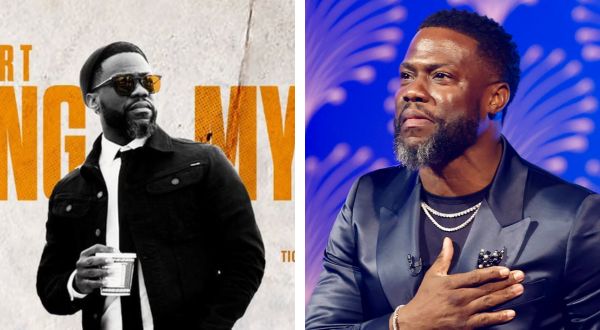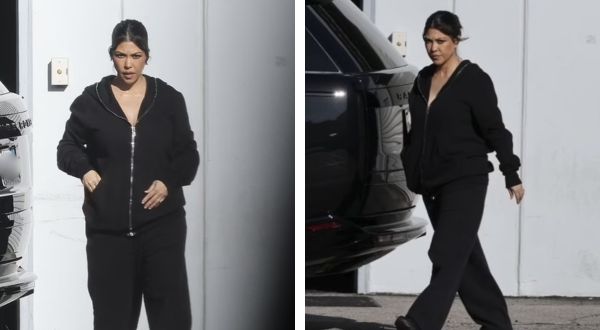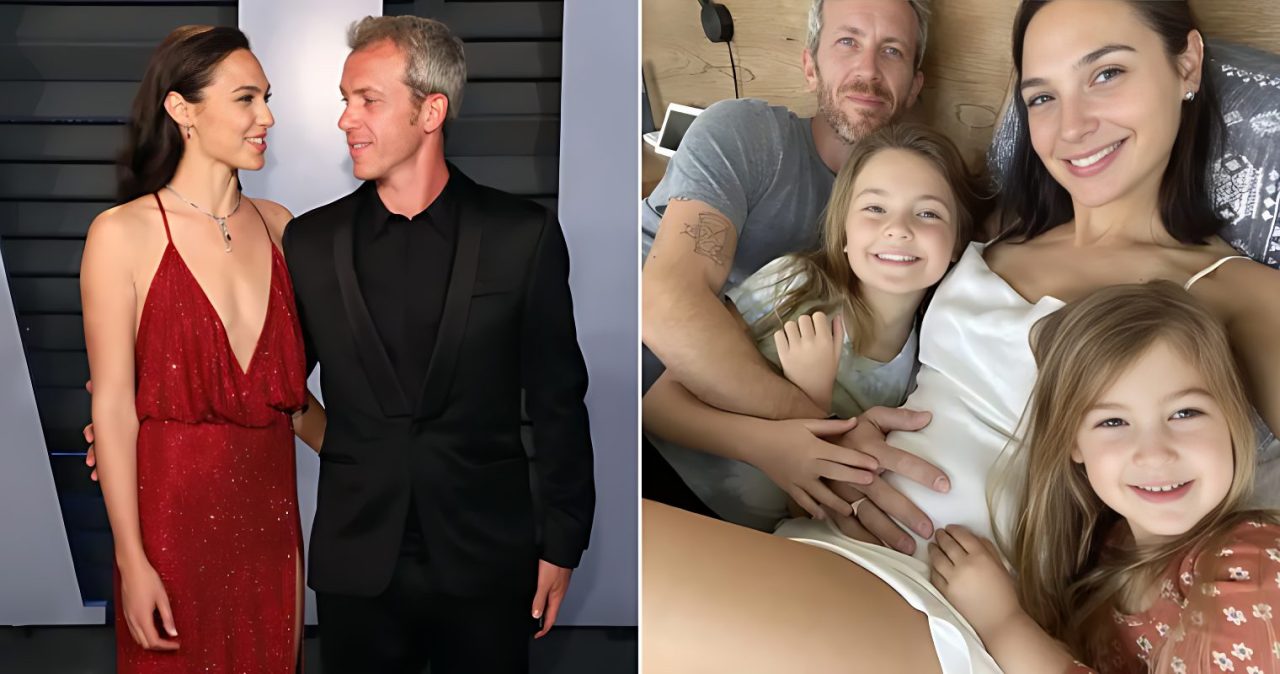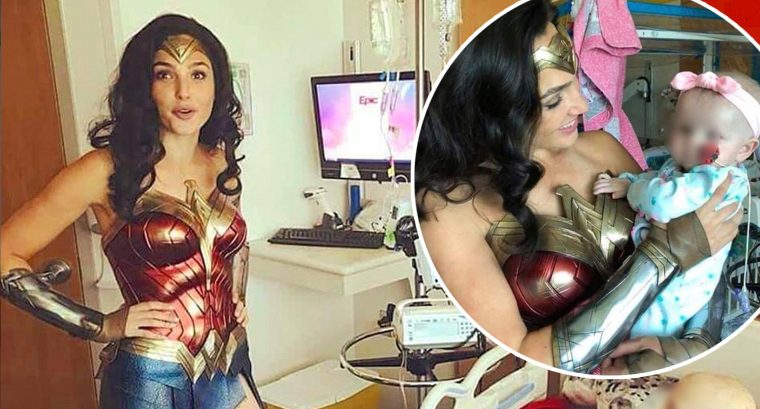During one of our last conversations, Dwayne Johnson’s five-year-old daughter, Jasmine, comes into his office to ask, a little impatiently, when he will be available to eat some lemon cake with her. She has walked into the middle of a discussion about whether her father truly has presidential ambitions. Earlier this year, after a poll suggested that 46 percent of Americans have some enthusiasm for this recurrently floated idea, Johnson responded on Instagram (where he currently has 270 million followers, the second most of anyone on the planet): “I don’t think our Founding Fathers EVER envisioned a six-four, bald, tattooed, half-Black, half-Samoan, tequila drinking, pick up truck driving, fanny pack wearing guy joining their club—but if it ever happens it’d be my honor to serve you, the people.”
Johnson and I go back and forth on this strange subject for some time as he tries to honestly describe where he stands. He explains that he finds the idea humbling, concedes that he has talked to people in politics and done “a small amount of research and analysis to see where this comes from and to see what it could look like in the future,” and adds suggestively that “indicators are all very positive—in, for example, 2024, and in, for example, 2028.” He is not, he confirms, ruling the possibility out. But then he loops back to this: “You know, at the end of the day, I don’t know the first thing about politics. I don’t know the first thing about policy. I care deeply about our country. I care about every fucking American who bleeds red, and that’s all of them. And—there’s no delusion here—I may have some decent leadership qualities, but that doesn’t necessarily make me a great presidential candidate. That’s where I am today.”

Dwayne Johnson’s sweater by Brunello Cucinelli.
This is when Jasmine appears to declare her more-lemon-cake-related agenda.
“As soon as I’m done, I’m going to come out and see you, okay?” her father tells her, gently. Then he asks her a question: “Do you know what the president of the United States is?”
Jasmine shakes her head.
“We’re actually talking about that right now,” he explains.
“Oh,” she says.
“If Daddy can become the president of the United States,” Johnson clarifies.
Jasmine—by way of answer or comic accident—indicates the ice-and-tequila-filled tumbler on Johnson’s desk and asks a question of her own:
“Are you drinking this?”
Dwayne Johnson was once a professional wrestler known as The Rock. Aside from his physical capabilities, he was celebrated for the exaggerated way he would raise his right eyebrow, and for an array of cartoonish, pugnacious catchphrases like “If you smell what The Rock is cookin’!” and “The Rock will layeth the smacketh down all over your candy ass!” Johnson sold these lines with great verve and displayed a rare command over wrestling audiences. Even so, when he set his sights on Hollywood, there was little reason to imagine he had the skills that might sustain a long-lasting second career.
For his first starring movie role, in a spirited, serviceable historical action-fantasy romp called The Scorpion King, he was billed only as The Rock. To promote it, Johnson was booked on Howard Stern’s radio show. At one point during this appearance, Stern and his cohosts weighed the possibility that their guest could ever be credited in a movie under his real name. Stern was particularly incredulous.
“As Dwayne?” Stern said. “Who’s going to go to a Dwayne Johnson movie? I mean, honestly.”
That was 19 years ago. I think it’d be fair to say that the results are now in. The simple, empirical truth is this: Dwayne Johnson is the most successful movie star in the world, and has been for some time. For each of the last five years, he was, according to Forbes’s annual list, either the highest or second-highest paid actor. (In that period, he is estimated to have earned a total of $430.4 million.)
“It sits me down,” says Johnson, mulling this circumstance. “It sits me down. That was never the goal. The goal was just: I didn’t want to be broke. And I didn’t want my family to be broke anymore.” In person—for our first meeting we’re sitting in a Los Angeles hotel room, and he’s idly nursing a different glass of tequila—his affect is far more reflective and soft-spoken than it usually is in the movies that have made him all this money. “And it’s a blessing, man. Are you kidding me? It’s a blessing. It’s a blessing. It’s a blessing.”

A few days later, Johnson heads alone to the gym. (He, his wife, Lauren, and his two young daughters, Jasmine and Tiana, are living in a Los Angeles rental while their new house is being built, so he temporarily has his private gym elsewhere.) Johnson is driving himself, as he always likes to, in one of the four pickup trucks he owns. “I’m a pickup truck guy,” he will tell me later, “so I have big tires and a big pickup truck. It belongs in the country, but it rolls through this hood.”
On this particular morning, as Johnson nears a stoplight, he realizes that he will be drawing alongside an open-topped Big Bus Celebrity Homes & Lifestyle Tour bus. Johnson’s driver’s side window is down, and he leaves it down. He begins to film what happens next, himself in frame.
“Hey, you guys,” he says out the window. “You know where I could find The Rock?”
The rest is shock, awe, and manic photo taking.
“Ah well, that was fun,” says Johnson to the camera. “Good way to start off my Saturday.”
Johnson is not the first celebrity to surprise a bus tour, but it doesn’t feel like he’s acting out of duty or a need for attention or as a prank or even (well, maybe just a little) because he knows it’ll make for good Instagram content. When I ask him about it later he simply says, “It’s one of the joys,” and I believe he means this. The more I talk to Johnson, the more I believe that he genuinely does see moments like this as fun—fun for them and fun for him. Fun all around. When I mention how many of his neighbors must roll up their darkened windows at that point, he responds: “Yeah, I’m sure they do. I think they’re missing out. It’s one of the best parts of fame, you know, to make people feel good. Oh, it’s the best. I do that all the time.” Later, he brings this up again, to append a further thought: “There was a time when no one knew who I was, nor gave a shit. I roll the windows down as a reminder. What an incredible position to be in. You got a chance to make somebody’s day.”
Johnson’s friend Oprah Winfrey detects something distinctive at work here. “Most people have the ‘Do you see me?’ gene,” she says, “but he truly has the ‘I see you’ gene. And I think the reason why he’s adored is because he is adoring of other people…. He really is what he appears to be. And people know that.”
The Johnson philosophy—fun for them, fun for him—also animates the movies he makes. “It is as simple as it sounds: Let’s make people feel good,” he says. And this goal also determines, to some degree, what he chooses to do in front of the camera: “There are a lot of actors—and a lot of my friends—that utilize the platform of acting to explore their emotional shit. What has worked for me is a lighter touch, as it relates to that. I would prefer not to explore my emotional shit in my movies because for me, that’s my responsibility to go figure out. That’s a lot of sludge. It’s more important to me to impact as many people as possible on day one. I don’t need acting to work out my personal shit. I work it out on my own.”
Don’t worry: Johnson has had plenty of sludge in his real life. There was enough incident and torment in his early years that if you, say, lightly fictionalized it, you could probably make a lessons-learned network TV show out of it all. (As they have. The second season of Young Rock returns to NBC in the new year after a one-off Christmas special.)
Johnson was born into professional wrestling. His Black Canadian father, Rocky Johnson, was a successful wrestler, as was his Samoan maternal grandfather, Peter Maivia. This was wrestling before the large national audiences and big paydays. It wasn’t an easy life. Dwayne was born 49 years ago in Hayward, near San Francisco, but the family frequently moved wherever a sustained period of wrestling work could be found. There are two particular moments in Johnson’s life that he often refers to as low points from which he derives motivation. The second occurred much later, when—in the final indignity of his failed football career—he was cut from the Canadian Football League at the age of 22. As he was being driven back to live with his parents, he searched through his pockets to find all the money he had in the world: a five, a one, and some change. (Johnson would memorialize the moment in the name of his film company, Seven Bucks Productions.)
“My mom gets out, completely glazed over in her eyes, and walks into I-65. Into traffic. Big rigs swerving. Like she felt, ‘What has my life come to? I don’t care anymore.’ ”
The first event came when he was 14. The family had been based in Hawaii for some time, but his father was off wrestling in Tennessee. One day, he and his mother came home to their Hawaii apartment to find a padlock and an eviction notice. His mother was distraught. “That was a defining moment,” he says. “I remember at 14 thinking, I will never, ever have my parents go through this again.”
What followed was a particularly tumultuous period. Johnson, now just turned 15, was sent ahead to Nashville, where, instead of staying with his father as he expected, he moved into a seedy motel room with one of his father’s wrestling friends, Bruno Lauer. “Who the fuck is Bruno?” Johnson remembers wondering. Nonetheless the two of them struck up an unusual friendship. Johnson’s role was to drive Lauer to his downtown Nashville drinking haunts, as well as to keep them both well supplied with anything they needed. Johnson had learned to steal in Hawaii. Back then, it was mainly clothes—“I just didn’t want to wear the same old shorts and T-shirt and flip-flops every day”—though he would also lift a king-size Snickers from the same 7-Eleven every day between 4 and 4:30 in the afternoon as he walked the three or four miles to the gym. Just breezed in, breezed out, without buying anything else. “They had to have known,” he now reflects.
In Nashville, Johnson used the same skills. “He’ll tell you himself—he was a thief,” Lauer tells me. “ ‘Bruno, you want some cigarettes? I got you a quart of beer. I got us some hot dogs, some this, some that…. I got me a radio….’ ” Johnson would pretend that people had given him the stuff for free because they were fans of Lauer or of his father, but of course Lauer knew the truth. “Hell, back then I didn’t have any morals either,” Lauer says. “I was benefiting too!”
Johnson’s mother arrived in Tennessee about a month after her son. Johnson knew that his father had been seeing someone else and that trouble was looming. Within minutes of her arrival, his mother spotted the Illinois plates on the vehicle her husband was driving and demanded, “Whose car is that?”
ADVERTISEMENT
The fight started in the motel—“not physical, but a massive fight,” says Johnson—and then they took a pause so that the warring parents and their teenage son could have an uneasy meal at Shoney’s Big Boy. “You can imagine,” he says, “what that lunch was like.” That evening Rocky was due to wrestle in a town maybe 100 miles away, so after the fighting resumed in the parking lot, they headed off. Johnson’s parents drove ahead in the car with the Illinois plates, and he followed them onto I-65 in the car his mother had driven from California. Even from behind, he could see that his parents were continuing to fight. A few miles outside Nashville, the car his father was driving abruptly swerved onto the gravel.
“My mom gets out, completely glazed over in her eyes, and walks into I-65, walks in the middle of the highway,” Johnson says. “Into traffic. Big rigs swerving. Like she felt, ‘What has my life come to? I don’t care anymore.’ ”
Johnson rushed from his car, ran into the traffic, grabbed his mother, and pulled her to the side of the road.
To this day, his mother remembers nothing of that moment.
“I think what breaks her heart is that I saw it, and I pulled her from the highway,” Johnson says. “That’s the part that really hurts her.”
I ask him whether that day on I-65 was the end of his parents’ marriage.
“No,” he says. “That was in ’87. And they didn’t get a divorce until I was 34 years old, which would have made it 2006. My mom always felt that she wanted to stay in the marriage and make it work.” She only changed her mind when her son was able to buy her her own house; she asked Johnson to sit with them while she broke the news to Rocky.
As for Johnson’s life of larceny, that would finally end the following year. In the fall of 1987, the three of them moved to Bethlehem, Pennsylvania. Winter was closing in, and Johnson needed warm clothes, so he obtained some—and got caught. His mother came down to the police station to get him. Later, back home, she broke down and pleaded with him not to do it anymore. In Hawaii he’d been arrested several times, but they had family connections there and could count on some leniency. Not here.
“I did a little bit of ripping myself open: ‘I’m working hard. I’m trying. I don’t have all the fucking answers at all. And I want you to know that truth.’ ”
In that moment, Johnson says, he realized something.
“I started caring that night. I’ll never forget it. I’ll never forget going to bed going, ‘Of all the shit my mom has been through and that I have been right there watching and witnessing, now I am compounding it with my dumb-ass decisions.’ ”
And he never stole anything ever again?
“No. That was it.”
Johnson pauses. Sometimes he just can’t help himself.
“Only hearts,” he adds.
As for his father, Johnson says that the incident on I-65 “triggered a real anger for my dad from me.” Going forward, their relationship was forever complicated. For instance, at the end of his football career, Johnson told his father he wanted to become a wrestler, and his father initially spurned him. “I said, ‘I want to get into the business,’ ” Johnson says, then recounts his father’s reaction: “Absolutely not. You got nothing to offer.” But then his father relented and trained him.
Over time, their relationship would get better, but it would never get easy.
“The irony is I fucking idolized my dad as a boy,” he says. “I idolized him, man. And obviously that idealization started to wane over the years. But the older I got, and the more experienced I got, the more I could appreciate his love for me in that limited capacity.”
Johnson met his first wife, Dany Garcia, when he was 18. They were both at the University of Miami, where Johnson believed himself on track to become an NFL star. In 2001, they had a daughter, Simone, but by the summer of 2007 they were divorcing. It somehow seems characteristic of Johnson’s story that even this defeat would morph into a different kind of victory: A year or so after their split, Garcia took charge of Johnson’s management, and their business partnership has been at the center of his accomplishments since, in movies and far beyond.

When Johnson first met Lauren—a musician and singer whose father, Sib Hashian, was Boston’s drummer in the band’s heyday—he says that he presented her with what he calls “the suit of armor.” “Which was: Everything is great. Life is great. Going through divorce, yes, but it’s great. Have a child who’s five or six at that time—it’s great.” A few months later, when it was clear things were getting serious between them, he realized that he needed to let her in. “And that truth was: Things are fucking hard. And this divorce is tough and it’s kicking my ass. And I’m really struggling, trying to figure out what kind of father I can be and not trying to bring the baggage of my own relationship—my complicated relationship—with my own dad to this relationship with Simone. I don’t know what the fuck is going on, what’s going to happen in my career, because things, they’re not hitting the way I’d anticipated. So I had done a little bit of ripping myself open to her and sharing the truth and feeling like, if we have a shot at a life together and if you’re going to love me, then the best version that I could give that is worthy of your love is one that’s truthful. So: ‘I’m working hard. I’m trying. I don’t have all the fucking answers at all. And I want you to know that truth.’ ”
That was almost 15 years ago. They were finally married in August 2019, in Hawaii, the ocean before them, in a small family ceremony that they managed to stage without word leaking beforehand. The wedding itself was at nine in the morning; in taking their vows, Johnson said not “I do” but “absolutely do.”
“I think I have had to be nothing but myself with Lauren,” he tells me. “And she has had to be nothing but herself with me.”
In its own sweet way, their wedding night honored that contract. Back at the hotel, when he realized that Lauren was exhausted, he told her that she should just go to bed. Johnson himself wasn’t tired, so he sat in the other room with all these “cheat foods” that he’d ordered—“chocolate chip cookies and cheesecake and vanilla ice cream”—and poured himself a tequila. Then he flicked through the available movies, landing on the Elton John fantasy biopic Rocketman. Really enjoyed it.
“So,” he says, softly amused, “my wedding night, yeah, was me and Elton and sugar and tequila.”
On the day when lemon cake awaits, Jasmine will actually interrupt our conversation more than once. The first time, Johnson introduces us and tells his daughter that he and I first knew each other a long time ago.
This is true. Johnson and I spent three days together back in 2002, when he was promoting The Scorpion King.
First I accompanied him to wrestling shows in Detroit and Cleveland, Johnson driving me between the two cities. (He had, I recall, a rather contrary attitude toward one-way streets. “Ah well,” he laughs, when I remind him of this, “no cop, no stop, you know?”) Then we took a private plane to Cancún, where he was filming a spring break show for MTV.
“He knew Daddy 20 years ago,” Johnson tells Jasmine now.
“Twenty years ago?” she says, as though trying to conceive of this.
ADVERTISEMENT
“When I was wrestling,” Johnson explains.
“He was wrestling with you?” Jasmine asks, peering at me with what I fear is a certain skepticism.
“He wishes,” says Johnson.
I ask Jasmine if she thinks that, had I been a wrestler, I would have won.
“No,” she says.
It clearly means something to Johnson that we shared these previous experiences. “I’m sure, knowing myself back then, I probably kept up a veneer that didn’t tell you how nervous I was,” he says. “That guy back then, oh, man. He was nervous as a motherfucker and didn’t know what was going on. And he was flying by the seat of his pants.”








